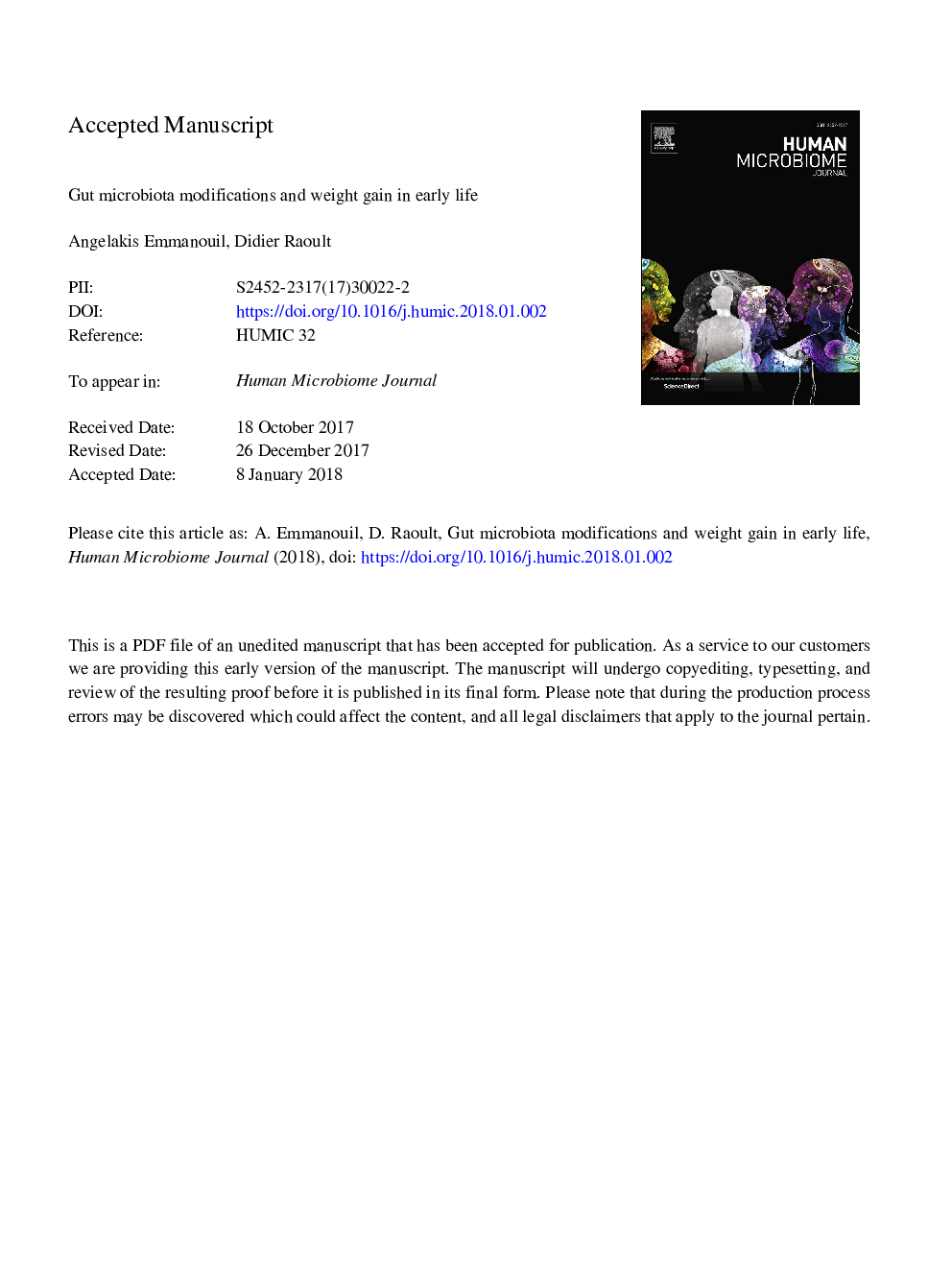| Article ID | Journal | Published Year | Pages | File Type |
|---|---|---|---|---|
| 8745611 | Human Microbiome Journal | 2018 | 22 Pages |
Abstract
Childhood and adolescent obesity is a significant public health concern and has been associated with cardiovascular disease and related metabolic sequelae later in life. In recent years, several studies have postulated an imbalance in the composition of the early life gut microbiota results in pediatric obesity and its associated diseases. The early life gut microbiota is influenced by several factors including the mode of delivery, prematurity, breastfeeding, and the use of antibiotics and probiotics. It has been proposed that, when given early in life, antibiotics and probiotics disrupt the gut microbiota and consequently its metabolic activity, promoting weight gain. Probiotics have increasingly been administrated to children and studies on the perinatal use of probiotics on low birth weight and healthy infants revealed significantly increased body length and weight later in life in comparison with infants who did not receive probiotic supplements. Similarly, exposure to antibiotics is very high perinatally and in the early periods of life and there is evidence that antibiotic treatment decreases the biodiversity of the early life gut microbiota. In addition, studies have revealed that antibiotic treatment during the first months of life is associated with being overweight later in life. In this paper we review the effects of the administration of probiotics and antibiotics in early life on the gut microbiota and discuss their effects on weight gain.
Related Topics
Life Sciences
Immunology and Microbiology
Microbiology
Authors
Emmanouil Angelakis, Didier Raoult,
